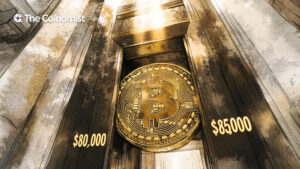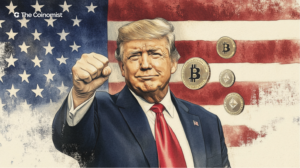Which Banks Partner With Ripple and What Does It Mean for XRP?

Ripple has been gaining traction in banking. Different financial institutions across the world are partnering with the company to improve their operations and provide customers with a better experience. This growing adoption of Ripple’s technology could positively impact XRP’s price, potentially driving higher demand and boosting its value.
On this page
- Why Banks Choose to Partner With Ripple
- Major Banks Adopting Ripple Products: Are US Banks on the List?
- 🇯🇵 MUFG Bank and SBI Holdings Holdings in Japan
- 🇦🇺 Commonwealth Bank, Westpac, and ANZ in Australia
- 🇦🇪 National Bank of Abu Dhabi (NBAD)
- 🇬🇧 Standard Chartered and Barclays in the UK
- 🇩🇪 DZ Bank in Germany
- 🇨🇭UBS in Switzerland
- Why Does This Matter to XRP Investors?
Why Banks Choose to Partner With Ripple
Banks are integrating Ripple to tackle common challenges, especially in cross-border payments.
First, what is Ripple?
You might initially think of Ripple as the company behind the XRP cryptocurrency. While that’s true, there’s more to the story. What sets Ripple apart from other blockchain protocols is its strong focus on serving financial institutions.
Founded in 2012 in San Francisco, Ripple describes itself as a provider of digital asset infrastructure for financial services. Its solutions are primarily designed to modernize traditional finance (TradFi), where banks play a central role.
To achieve this, Ripple developed its blockchain protocol – the XRP Ledger (XRPL) – tailored specifically to meet the needs of businesses.
Ripple’s blockchain technology offers faster transaction settlements, lower costs, and greater transparency compared to traditional systems.
While blockchain and cryptocurrency are often seen as alternatives to banks and government control, Ripple takes a different approach. Its mission is to promote blockchain adoption by bridging traditional finance (TradFi) with distributed technologies.
Over the years, Ripple has introduced a variety of innovative products, including the RLUSD stablecoin, a platform for central bank digital currencies (CBDCs), and the On-Demand Liquidity (ODL) service, which leverages XRP to streamline cross-currency payments.
Major Banks Adopting Ripple Products: Are US Banks on the List?
Financial institutions across the world have shown a strong interest in Ripple for years. Among early adopters, new ones are considering how to integrate Ripple products into their services.
As of January 2025, US banks are not on the list, as the SEC vs. Ripple case is not over yet. If you don’t know what we’re talking about, in December 2020, the SEC sued Ripple over selling XRP as an unregistered security.
However, with Donald Trump’s win, Paul Atkins replacing Gary Gensler as SEC chair, a potentially crypto-friendly environment, and Ripple’s progress in court, things look promising.
Nobody knows yet how banks and Ripple will work things out in the U.S., but here’s a look at some of the 100+ banks already in Ripple’s global network.
🇯🇵 MUFG Bank and SBI Holdings Holdings in Japan
In 2017, MUFG Bank – the main banking arm of Mitsubishi UFJ Financial Group – joined Ripple’s global payments network. A year later, they took things further by signing a Memorandum of Understanding (MOU) with Banco Bradesco in Brazil to use Ripple’s tech for cross-border payments. Pretty forward-thinking for the time.
Then there’s SBI Holdings, another major player in Japan. They teamed up with Ripple in 2016 to launch SBI Ripple Asia, a joint venture focused on rolling out Ripple’s enterprise solutions for cross-border payments in the region. Since then, this partnership has grown, expanding Ripple’s reach into more countries.
Overall, XRP has been making waves in Japan’s banking sector. A consortium of over 60 banks – representing about 80% of the country’s banking industry – is working on implementing Ripple’s distributed ledger tech to improve local payment systems. That’s a pretty big vote of confidence for Ripple in Japan.
🇦🇺 Commonwealth Bank, Westpac, and ANZ in Australia
Australian banks were among the early adopters of Ripple. Commonwealth Bank, one of the country’s largest financial institutions, started experimenting with Ripple for cross-border payments in May 2015.
David Whiteing, then CIO at CBA, highlighted the bank's initiative to test crypto protocols, aiming to explore the benefits of intra-bank transfers using this technology.
Westpac (WBC), another banking giant in Australia, joined the Ripple network around the same time. Along with the New Zealand Banking Group (ANZ), they began integrating Ripple for international transfers in June 2015.
The involvement of these major players early on shows how Australian banks were looking to leverage blockchain tech to improve their payment systems.
🇦🇪 National Bank of Abu Dhabi (NBAD)
In February 2017, the National Bank of Abu Dhabi (NBAD) became the first bank in the Middle East to implement Ripple's blockchain technology for real-time cross-border payments. This integration allowed NBAD to provide its customers with efficient, secure, and immediate international remittance services, enhancing transparency and reducing costs.
By adopting Ripple's distributed ledger technology, NBAD aimed to offer their customers more cost-effective cross-border payments services, while saving on operational costs at the same time.
🇬🇧 Standard Chartered and Barclays in the UK
The UK wasn’t left behind either. Standard Chartered, one of the major global banks, started testing Ripple’s blockchain back in 2015 to make international transactions faster and cheaper.
In 2015, the institution made a strategic investment in Ripple to accelerate digitisation and the use of distributed technology.
Then you’ve got Barclays, which was one of the 12 banks that started to test out Ripple in October 2016.
At the same time, in 2018, international payments provider TransferGo partnered RippleNet with Ripple to enhance remittance services for Indian migrant workers, enabling fund transfers from Europe to India fast and with lower costs.
Daumantas Dvilinskas, the company’s co-founder and CEO said the solution helps users save up to 90% on traditional fees for cross-border transfers.
🇩🇪 DZ Bank in Germany
DZ Bank, Germany’s biggest depository institution, managing €350 billion in assets launched their institutional digital asset custody platform using Ripple’s technology in November 2023.
Ripple Custody (it used to be called Metaco Harmonize) is the engine behind it. This platform helps DZ Bank securely handle, manage, and settle digital assets like crypto securities, all while staying compliant with Germany’s Electronic Securities Act. It’s like the perfect blend of cutting-edge blockchain tech and traditional banking processes.
What’s interesting is how this partnership expands DZ Bank’s services for institutional clients. They’re offering features like blockchain analytics and wallet management, so their institutional clients can get everything they need in one place.
🇨🇭UBS in Switzerland
UBS, the Swiss banking giant, has been working with Ripple for quite some time now. Back in 2016, they joined Ripple’s global network, teaming up with other major banks to improve how cross-border payments work. The goal? To make international payments faster and cheaper using Ripple’s blockchain-based tech.
Ripple’s distributed ledger technology lets UBS process payments in real time while cutting down on costs.
More recently, in 2024, Ripple became a strategic partner of Tenity, an innovation hub that UBS and SIX Group are also part of. It’s a pretty promising collaboration, with these major players working together to redefine fintech innovation.
Why Does This Matter to XRP Investors?
Here’s the deal: as more financial institutions adopt XRP, it highlights the cryptocurrency's utility.
XRP plays a key role in the XRP Ledger (XRPL). Every transaction on the ledger – whether it’s sending payments, minting tokens, or running smart contracts – requires XRP to function.
With banks and other financial entities starting to use it, XRP’s role in the financial sector could grow.
Potential participation from U.S. banks after the anticipated positive outcome in the SEC vs. Ripple legal battle could further solidify XRP’s position.
This is why Ripple’s XRP has seen a large price growth over the last months. At the moment of writing, the coin ranks 3rd by market cap. In January 2024, the coin broke above $3 for the first time since 2018, getting close to its all-time high.
The content on The Coinomist is for informational purposes only and should not be interpreted as financial advice. While we strive to provide accurate and up-to-date information, we do not guarantee the accuracy, completeness, or reliability of any content. Neither we accept liability for any errors or omissions in the information provided or for any financial losses incurred as a result of relying on this information. Actions based on this content are at your own risk. Always do your own research and consult a professional. See our Terms, Privacy Policy, and Disclaimers for more details.
























